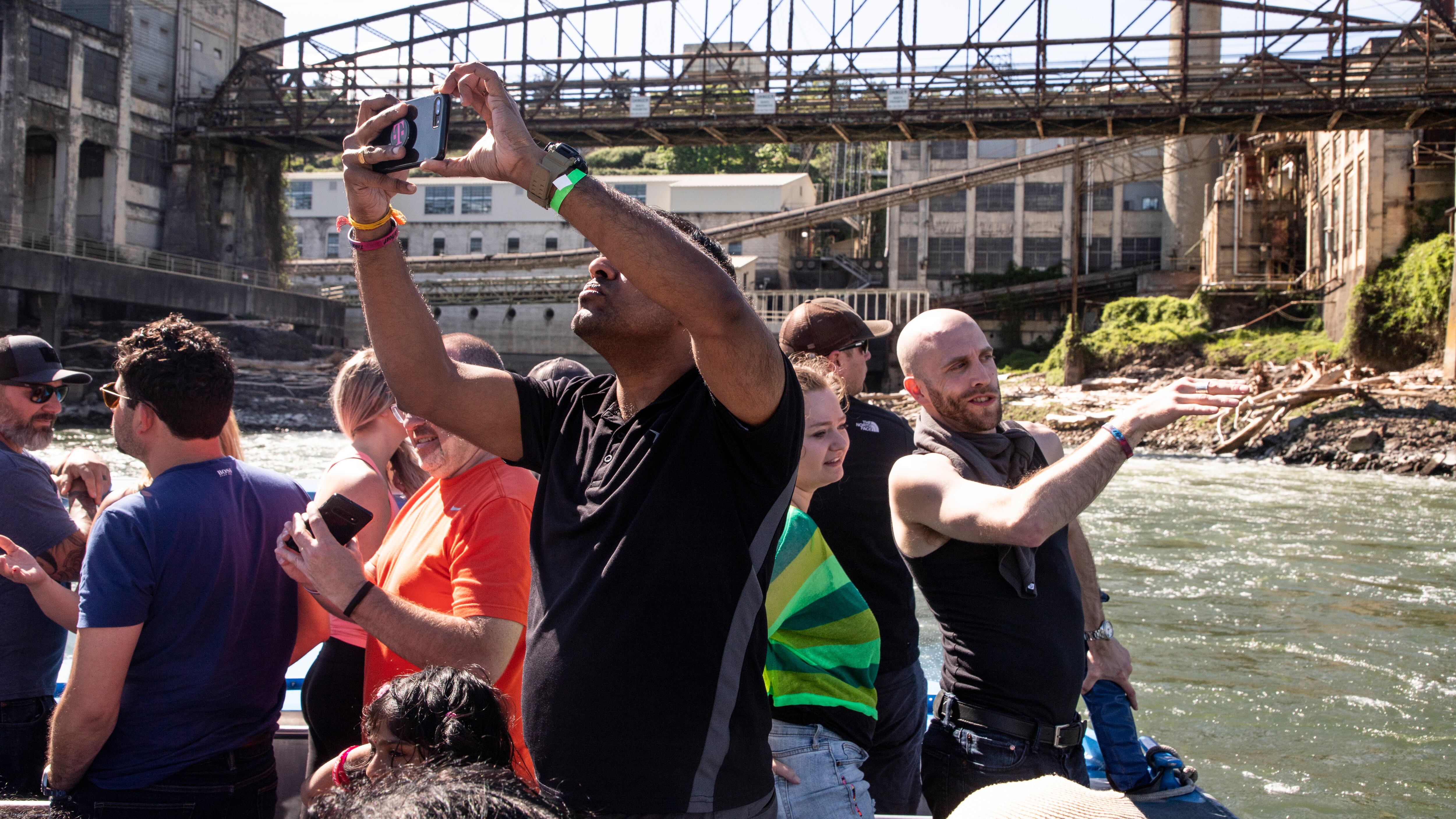WW has learned that the the Confederated Tribes of the Grand Ronde, operators of the state's largest casino, plan to purchase the defunct Blue Heron paper mill in Oregon City.
The purchase is subject to approval by the tribe's council, which meets tonight, although Grand Ronde spokeswoman Sara Thompson says the tribe is still doing due diligence and will not make a final decision tonight.
The purchase, if completed, could accomplish two important goals for the tribe: it would give the Grand Ronde unfettered access to a culturally and historically significant fishing spot at Willamette Falls; and it, would put the tribe in possession of a prime piece of waterfront real estate in the Metro area with enormous development potential. The Grand Ronde has long sought to diversify its economic base, which is almost entirely dependent on its casino.
Grand Ronde Chairwoman Cheryle Kennedy, who is a member of the Clackamas tribe, says the Grand Ronde have long been interested in the Blue Heron site.
"The property has always been of great cultural significance to us," Kennedy says. "For native Americans, land is very important. Being able to continue with the historical cultural practices of the area and the revitalization of the environment also important."
Kennedy says the potential purchase is not aimed at someday siting a casino in Oregon City.
"The Grand Ronde have no plans to build a casino there," Kennedy says. She notes that the tribe has invested heavily in Spirit Mountain and is committed to maintaining it as the state's top casino.
"Sometimes I get frustrated about being asked that," Kennedy says. "The state's policy is one casino per tribe, located on existing tribal lands. We don't expect that to change."

The proposed purchase follows a flurry of activity at Willamette Falls.
Last year, WW first reported that Grand Ronde's desire to resume historical fishing by placing a fishing platform at Willamette Falls put them in conflict with other tribes and Portland General Electric, which operates a dam at the falls.
Meanwhile, as tribal interest in Willamette Falls grow, the industrial activity adjacent to the falls has ground to a halt. In 2017, West Linn Paper announced the closure of its mill after 128 years in operation. Blue Heron, in various incarnations operated even longer, 145 years.
Since Blue Heron went bankrupt and closed the mill in 2011, however, not much has happened on the site.
A Washington developer, George Heidgerken, controls the property but his vision for a mixed-use project has progressed slowly. A plan to develop a public park along the edge of the falls generated enthusiasm from local and state elected officials, including Gov. Kate Brown, but it too has moved slowly.
As the Grand Ronde worked closely over the past couple of years with the Oregon Department of Fish and Wildlife and the Department of State Lands to gain permission to build a fishing platform at Willamette Falls, they did so over the objection of other tribes, including the Warm Springs and Umatilla tribes.
Representatives of both of those groups told WW last year that they feared the Grand Ronde want more than just a return to fishing for lamprey and salmon at Willamette Falls—they may also want to expand their physical presence in the metro area with a long-term view to possibly establishing a casino here.
Kennedy says that's just not the case and adds that she finds continued speculation about such plans frustrating.
There's a reason for speculation. The gambling business in Oregon is competitive and changing fast, with the state and tribes seeking to enter sports and mobile betting. And two years ago, after a decade-long process, the Cowlitz tribe opened the Ilani Casino near Ridgefield, about 25 miles north of Portland.
And about 15 years ago, the Grand Ronde offered to finance a Major League Baseball Stadium in Portland in exchange for being allowed to site a casino here. That deal never got off the ground.
As Kennedy notes, the rules that govern tribal gambling in Oregon are complex and difficult to change. But there is ambiguity and room for interpretation around current practices, as WW has reported, and powerful incentives exist for tribes to challenge the status quo.
Kennedy says she hopes the tribe will complete due dilgience and make a purchase "soon." The Blue Heron property would be the Grand Ronde's second major real estate acquisition in the metro area. In 2015, the Grand Ronde bought the defunct 31-acre Multnomah Greyhound track in Wood Village. The tribe announced plans to sell that property last year, however, it has put that plan on hold. "We are still considering a number of options there," Kennedy says.

